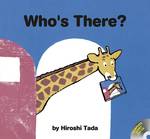- ホーム
- > 洋書
- > 英文書
- > Philosophy
Full Description
Plato's dialogues are some of the most widely read texts in Western philosophy, and one would imagine them fully mined for elemental material. Yet, in Plato and Tradition, Patricia Fagan reveals the dialogues to be continuing sources of fresh insight. She recovers from them an under appreciated depth of cultural reference that is crucial to understanding their central philosophical concerns. Through careful readings of six dialogues, Fagan demonstrates that Plato's presentation of Socrates highlights the centrality of tradition in political, erotic, and philosophic life. Plato embeds Socrates's arguments and ideas in traditional references that would have been familiar to contemporaries of Socrates or Plato but that today's reader typically passes over. Fagan's book unpacks this cultural and literary context for the proper and full understanding of the philosophical argument of the Platonic dialogues. She concludes that, as Socrates demonstrates in word and deed, tradition is essential to successful living. But we must take up tradition with a critical openness to questioning its significance and future. Her original and compelling analyses may change the views of many readers who think themselves already well versed in the dialogues.
Contents
Acknowledgements 6 Introduction 7 Section I: Eros and Tradition 15 Chapter 1: Alcibiades I and Pederasty 16 I. The Conversation of Alcibiades I 16 II. Learning Language 20 III. Socrates' Knowledge 24 IV> Socratic Love 27 V. The New Pederasty 29 VI. The New Eros as a Challenge to Athenian Culture 36 Chapter 2: The Symposium and Sappho 38 1. Care 39 II.Careful Reading 49 III. Diotima 52 IV. Eros 63 Conclusion 69 Section II: Polis and Tradition 74 Chapter 3: Republic 3 and the Sirens 75 I. Republic 3 and Odyssey 12 78 II. Socrates' Foundational Myths 90 III> Republic 3 and Sparta 98 Chapter 4: Laws 4 and the Cyclopes 102 I. The Situation of the City 103 II. The Cyclopes 107 III. Dionysus 113 Conclusion 118 Section III: Philosophy and Tradition 121 Chapter 5: The Apology and Oedipus 122 I. Oedipus 124 II. Socrates 127 III. Teiresias 136 IV. Tragedy to Epic 139 Conclusion: Genre and Innovation 142 Chapter 6: The Crito and Thersites 145 I. Socrates' Dream 146 II. Crito and Thersites 149 III. Socrates' Response 155 Conclusion 162 Conclusion 165 Bibliography 167 Notes 177







